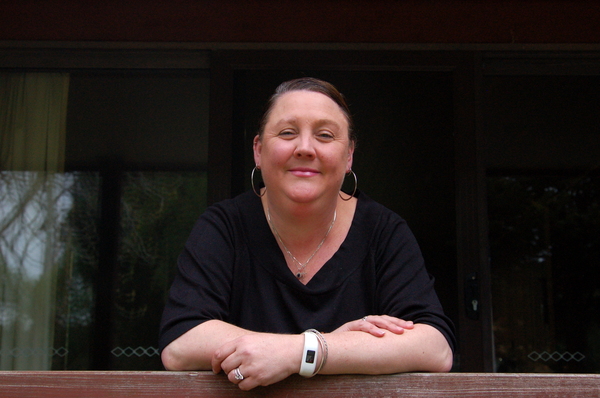By Kyra Gillespie
To honour Breast Cancer Awareness Month this October, breast cancer survivor Megan Scates opens up about her journey with the disease and how it has changed her outlook on life.
Ms Scates was sitting in the lounge room of her Maryknoll home with her husband when she knocked a painful lump on her breast.
“I thought it was a bit odd, and I could feel a lump so a week or so later I went to the doctor to get it checked. He actually wasn’t concerned at the time; he thought it was just a cyst because it felt quite large and soft, when usually they are quite small and hard,” she said.“He told me to get it checked but that there was no real urgency. So I went to get a mammogram the following Wednesday, and the next day I had about five missed calls from the surgery.
“They told me to come straight in, and that Monday I went into hospital and they removed the cancer and my lymph nodes.”
Ms Scates was only 33 years old at the time, and had an 8-year-old son and 5-year-old daughter who had just started prep.
It was Mother’s Day the weekend just after she received the diagnosis: a stage two tumour around 3cm in size.
“I just burst into tears, I remember saying how unfair it was; I was about a month off my 34th birthday, I had two small kids and I just thought: ‘this can’t be happening.’
“Then I decided I just had to get on with it. I said to my surgeon, whatever has to be done I’ll do it.”
Nine months of gruelling treatment ensued, with two rounds of chemotherapy and a bout of radiation.
The first round of chemotherapy required six lots of treatment, three weeks apart.
It was a strong chemo, requiring an overnight stay in hospital each time.
The second round was once a week for 12 weeks at a day clinic.
“The first kind of chemo was fine, but my body didn’t like the second one; I actually stopped breathing. My body rejected it but I needed it to get better.
“So instead they tried giving me a small amount at a time, rather than the full dose upfront and that seemed to work much better.
“Going to the clinic was quite sad in a way because it was always full; there were so many other people there getting the same treatment.”
After the chemo came 30 days straight of radiation therapy.
“The radiation was hard work; it only took around ten minutes, but we had to travel all the way to Frankston for such a short time every day except the weekends. So it was pretty tiring.”
Juggling her role as a mother and a patient proved challenging at times, but the Maryknoll local said keeping her normal routine got her through.
“Every day was different, and some days I’d feel really sick and crappy, while others were better.
“I mostly kept up my normal routine; the kids keep going with their busy lives so I didn’t really have time to stop.
“It was hard having the kids, but I think it was good for me to keep going and not have time to stop and think too much.”
The harsh drugs caused her to lose her hair.
“I am quite a private person, and having cancer in a way made me lose that privacy in a way.
“Everyone knew and I found that hard. I remember one day I was heading to the footy with my family and a woman came up to me and told me that I was really brave and special for going through what I was.
“I remember later bursting into tears and thinking I don’t want to be special or brave, I just want to be me.”
Almost eight years on, the mother of two said her outlook on life has changed.
“I often stop and think: how lucky am I? I’m still here, and not everyone is that lucky.
“I definitely encourage other women to check themselves regularly; only you know your own body.
“Get onto it straight away – don’t leave it because the faster they can do the treatments the better chance that you’ve got.”







